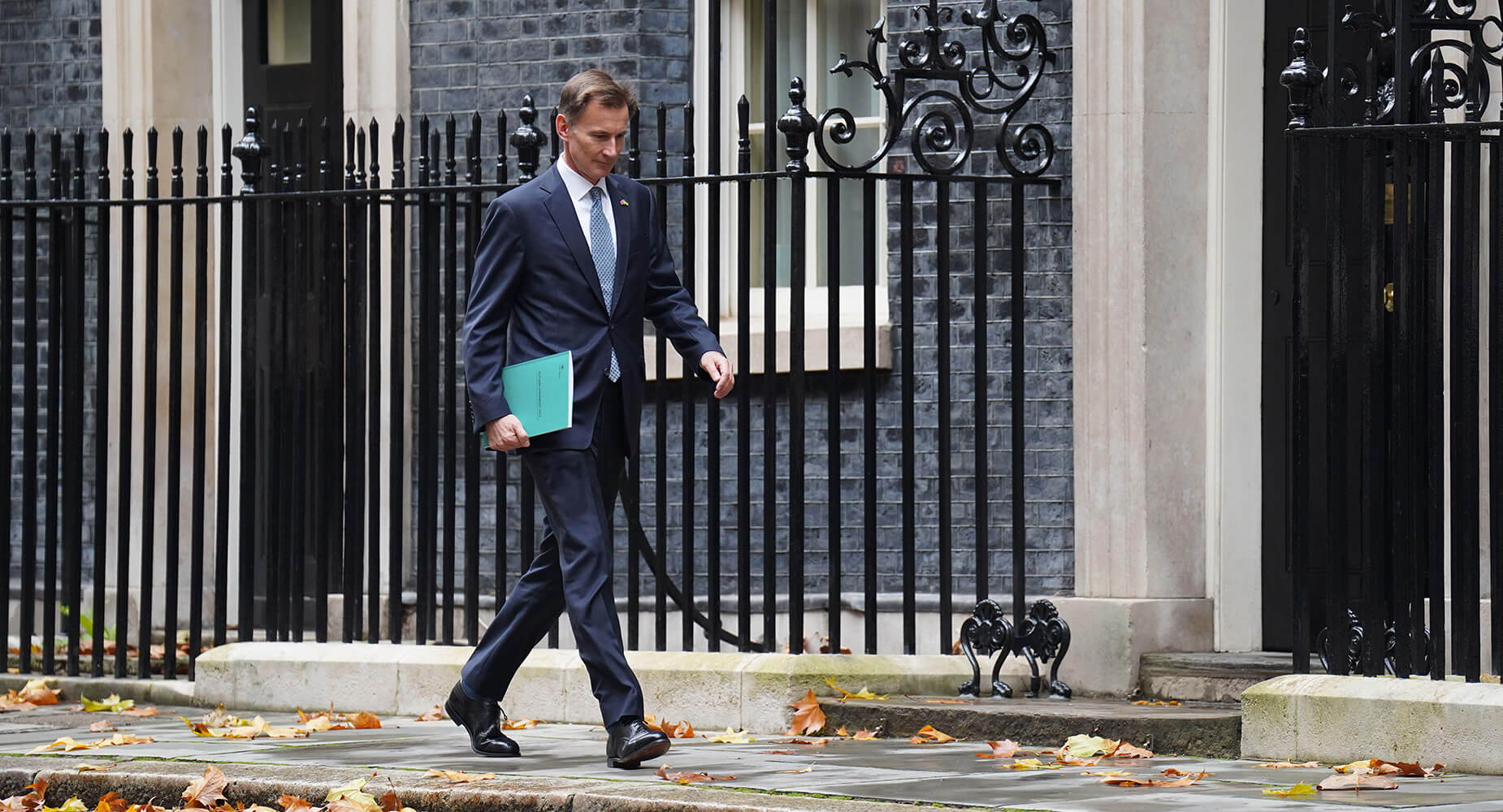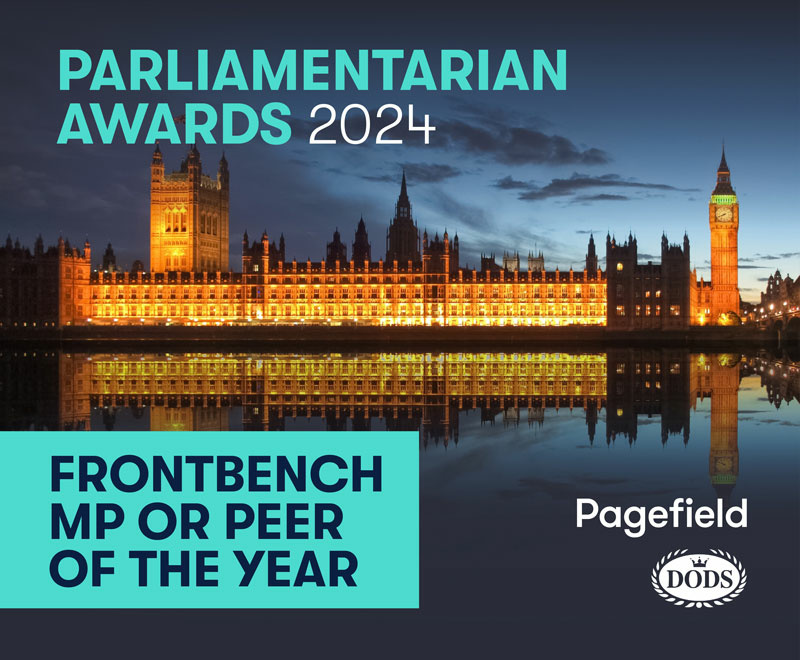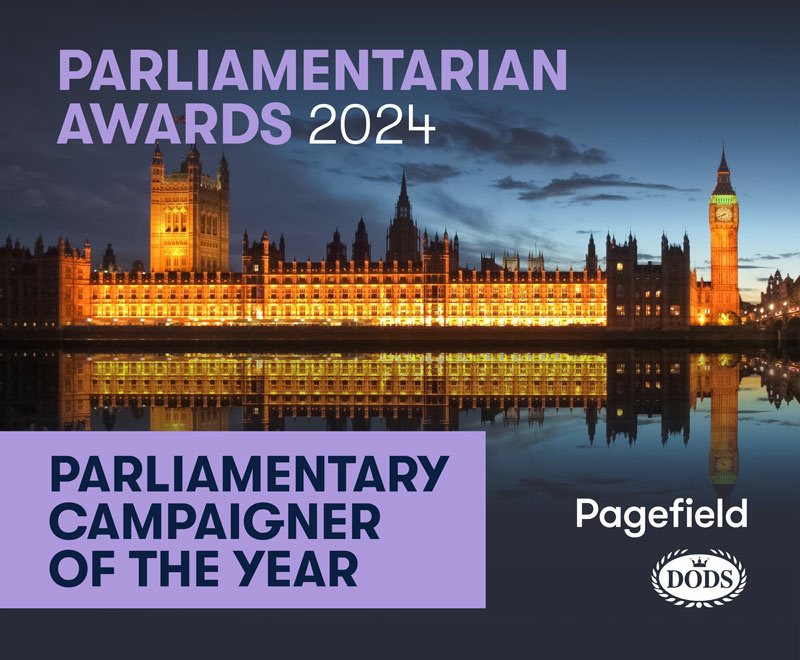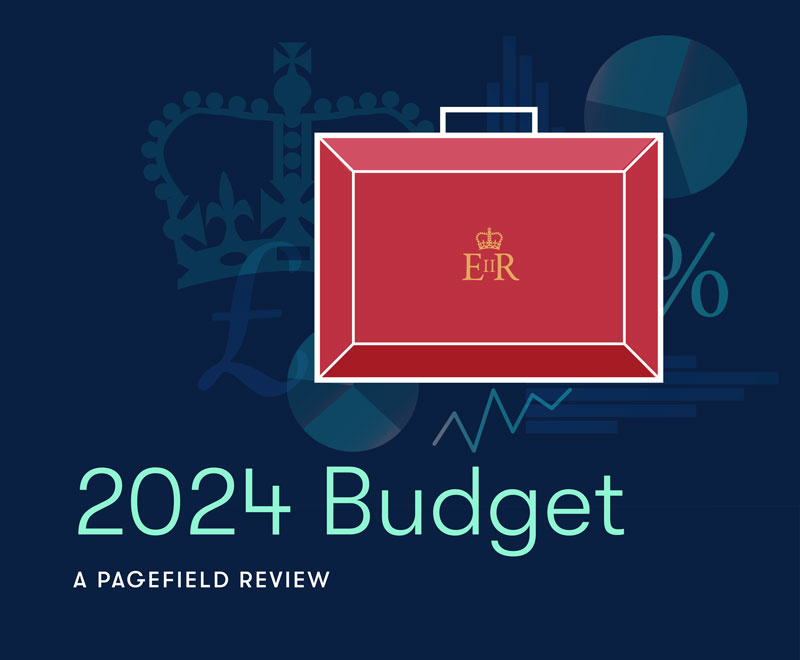Jeremy Hunt had the unenviable task of setting out a roadmap for the UK to economic success. It is no wonder that after 12 years of Conservative Government, Hunt was keen to emphasise that this recession was “made in Russia” and not a result of economic mismanagement by the Conservative Party, as Labour are eager to argue. From this incredibly weighty Autumn Statement here are five things Pagefield learnt.
Fiscal Conservatism is back
Economic stability was the name of the game, following the disastrous Mini-Budget delivered in September which ultimately led to the fall of Truss’ government. This meant an eye-watering mix of tax rises and spending cuts worth £55 billion.
This is quite clearly a departure from the boosterism of Johnson and Going for Growth mantra of Trussonomics, instead representing a return to the fiscal conservatism seen under Cameron and May. Yet with public services already in a relatively weak position, Hunt has balanced this fiscal tightening through a series of stealth taxes (freezing the tax thresholds for income tax and national insurance) and targeting the wealthy (reduction in the 45p threshold and allowances for Capital Gains, Dividends, and Inheritance).
This may initially appear to be unconservative, however throughout his statement it was notable how often the Chancellor pointed out how his proposals would not deepen or lengthen the current recession. In fact, he repeatedly highlighted how his plan would make the recession shorter and shallower. Whilst many will argue that this is still consistent with the conservative values the Chancellor and Prime Minister claim to embody, the days of prioritising tax cuts and a small state are well and truly over.
Not all doom and gloom
The run up to the Autumn Statement was marked by consistent briefing and leaking of potential announcements, which ranged from the plausible to the delusional. Whilst it was unsurprising that some of these mooted policies never saw the light of day, it is striking that we did not see the axe fall on public services as hard as many feared. Education, Health, and Social Care were big winners from this Statement, with the CEO of NHS England, Amanda Pritchard, stating that the settlement of £6.6 billion over 2 years will fund the requirements needed for the NHS. The increase in social care funding, which is roughly £7 billion, was also a welcome surprise, but masks the delay to the Social Care Reforms announced by Johnson which cost considerably more.
More broadly though departments will still see their budgets protected and increase over the next 5 years but in real terms will be ravaged by inflation and the growing demand for public services from an ageing population.
Growth is still on the agenda
There were concerns that in the pursuit of stability and sending a strong signal to the financial markets, that the Treasury would focus too much on balancing the books and neglect pro-growth policies. Fortunately, this does not appear to be the case.
Commitments to R&D spending have been maintained, as have commitments to key pieces of national infrastructure such as HS2, core Northern Powerhouse Rail, and Sizewell C. Hunt committed not to slash the Government’s capital budgets and also pledged to match Round 2 of the Levelling Up Fund.
In addition to this, education and skills are also being prioritised with £2.3bn each year for schools and a plan to implement a skills reform agenda. Other proposals to change legacy EU regulation in the UK’s key growth sectors, remove certain import tariffs, and the introduction of £14bn of Business Relief and support will surely send a good signal to businesses.
Although investment budgets will see a real terms cut in the next two years – which business will rightly grumble about – the Government has rightly taken on board the central belief of Truss’s Government, that reversing the UK’s anaemic growth rate can no longer be ignored.
Is the worst still to come?
There was rightly a lack of giveaways and rabbits in this Statement given the economic situation we now find ourselves in. The analysis from the OBR painted a bleak picture for the UK economy. With house prices set to fall by 9%, inflation predicted to remain high until the middle of the decade, living standards set to decline to levels not seen since 2013, and economic growth to remain stubbornly sluggish, the economic picture for the country looks bleak.
Yet despite this, much of this depends on external factors such as how the war in Ukraine pans out, whether inflation cools down faster than expected, or if interest rates increase more slowly than anticipated. Furthermore, the various supply-side reforms alluded to could all improve this. One such example of this is the review into the steep rise in economic inactivity in the UK’s workforce which still has not recovered to pre-pandemic levels. The findings of this review could propose solutions to one of the driving forces of inflation and would be greatly welcomed from the Treasury and businesses alike.
A pathway to a 5th Conservative Term in office looks tricky, but not impossible
All of this must be viewed through the lens of Britain’s electoral cycle and to put it bluntly it’s not looking great for the Tories. With inflation not returning to normal levels until the middle of the decade, and growth not resuming until 2024, Labour will be able to source their campaign lines from the OBR. Although there are numerous reasons behind the country’s economic troubles, many of which are being felt by other economies and are out of the Conservatives’ control. After 12 years in power, it will become increasingly difficult to pass blame – rightly or wrongly.
That being said, there are still 2 years until the next election and as we have seen from this year alone things can change quickly. Furthermore, many of the Chancellor’s spending cuts and tax rises fall during or after 2024, meaning any incoming Labour-led Government will have to explicitly state whether they will endorse the current spending plans. This could create a political trap for Labour, and though it didn’t work for Blair, who famously pledged to honour the Tories spending plans for his first two years in office, it may yet work on Kier Starmer.




